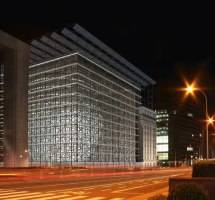February 3, 2015
UK Government lays out its plans and hopes for Internet of Things
 Ofcom, the UK Government’s regulatory body for the telecoms industry, has published its strategy to establish the ways in which the UK can have a leading role in the development of the Internet of Things. The technology, which links objects to each other wirelessly, is already installed in some 40 million devices in the UK and Ofcom predicts this number will grow in to the hundreds of millions by 2022 with more than a billion daily transfers of information. The report is calling for a collaborative programme of work led by the private sector and government to create a regulatory and business environment that encourage the uptake of the technology and drives investment and innovation. The report lays out the key criteria needed to make this a reality and presents a range of scenarios in which the technology yields discernible benefits.
Ofcom, the UK Government’s regulatory body for the telecoms industry, has published its strategy to establish the ways in which the UK can have a leading role in the development of the Internet of Things. The technology, which links objects to each other wirelessly, is already installed in some 40 million devices in the UK and Ofcom predicts this number will grow in to the hundreds of millions by 2022 with more than a billion daily transfers of information. The report is calling for a collaborative programme of work led by the private sector and government to create a regulatory and business environment that encourage the uptake of the technology and drives investment and innovation. The report lays out the key criteria needed to make this a reality and presents a range of scenarios in which the technology yields discernible benefits.
























January 23, 2015
Good communication is essential to ensure workplace health and safety
by Mike James • Comment, Facilities management, Legal news, Wellbeing, Workplace
(more…)